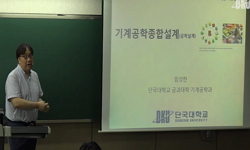Next-generation sequencing (NGS) is currently used in the clinical setting for targeted therapies and diagnosis of hematologic malignancies. Accurate detection of somatic variants is challenging because of tumor purity, heterogeneity, and the complexi...
http://chineseinput.net/에서 pinyin(병음)방식으로 중국어를 변환할 수 있습니다.
변환된 중국어를 복사하여 사용하시면 됩니다.
- 中文 을 입력하시려면 zhongwen을 입력하시고 space를누르시면됩니다.
- 北京 을 입력하시려면 beijing을 입력하시고 space를 누르시면 됩니다.



Korean Society for Genetic Diagnostics Guidelines for Validation of Next-Generation Sequencing-Based Somatic Variant Detection in Hematologic Malignancies
한글로보기https://www.riss.kr/link?id=A106405260
- 저자
- 발행기관
- 학술지명
- 권호사항
-
발행연도
2019
-
작성언어
English
- 주제어
-
등재정보
KCI등재,SCIE,SCOPUS
-
자료형태
학술저널
- 발행기관 URL
-
수록면
515-523(9쪽)
-
KCI 피인용횟수
0
- DOI식별코드
- 제공처
-
0
상세조회 -
0
다운로드
부가정보
다국어 초록 (Multilingual Abstract)
Next-generation sequencing (NGS) is currently used in the clinical setting for targeted therapies and diagnosis of hematologic malignancies. Accurate detection of somatic variants is challenging because of tumor purity, heterogeneity, and the complexity of genetic alterations, with various issues ranging from high detection design to test implementation. This article presents guidelines developed through consensus among a panel of experts from the Korean Society for Genetic Diagnostics. They are based on experiences with the validation processes of NGS-based somatic panels for hematologic malignancies, with reference to previous international recommendations. These guidelines describe basic parameters with emphasis on the design of a validation protocol for NGS-based somatic panels to be used in practice. In addition, they suggest thresholds of key metrics, including minimum coverage, mean coverage with uniformity index, and minimum variant allele frequency, for the initial diagnosis of hematologic malignancies.
참고문헌 (Reference)
1 Swerdlow SH, "WHO classification of tumours of haematopoietic and lymphoid tissues" International Agency for Research on Cancer 16-27, 2017
2 Arber DA, "The 2016 revision to the World Health Organization classification of myeloid neoplasms and acute leukemia" 127 : 2391-2405, 2016
3 Levin JZ, "Targeted next-generation sequencing of a cancer transcriptome enhances detection of sequence variants and novel fusion transcripts" 10 : R115-, 2009
4 Beck TF, "Systematic evaluation of Sanger validation of next-generation sequencing variants" 62 : 647-654, 2016
5 Wala JA, "SvABA : genome-wide detection of structural variants and indels by local assembly" 28 : 581-591, 2018
6 Li MM, "Standards and guidelines for the interpretation and reporting of sequence variants in cancer : A joint consensus recommendation of the association for molecular pathology, American Society of Clinical Oncology, and College of American pathologists" 19 : 4-23, 2017
7 Yohe S, "Review of clinical next-generation sequencing" 141 : 1544-1557, 2017
8 Kanagal-Shamanna R, "Principles of analytical validation of next-generation sequencing based mutational analysis for hematologic neoplasms in a CLIA-certified laboratory" 16 : 461-472, 2016
9 Shin HT, "Prevalence and detection of low-allele-fraction variants in clinical cancer samples" 8 : 1377-, 2017
10 Ellard S, "Practice guidelines for targeted next generation sequencing analysis and interpretation" Association for clinical genetic science (ACGS)
1 Swerdlow SH, "WHO classification of tumours of haematopoietic and lymphoid tissues" International Agency for Research on Cancer 16-27, 2017
2 Arber DA, "The 2016 revision to the World Health Organization classification of myeloid neoplasms and acute leukemia" 127 : 2391-2405, 2016
3 Levin JZ, "Targeted next-generation sequencing of a cancer transcriptome enhances detection of sequence variants and novel fusion transcripts" 10 : R115-, 2009
4 Beck TF, "Systematic evaluation of Sanger validation of next-generation sequencing variants" 62 : 647-654, 2016
5 Wala JA, "SvABA : genome-wide detection of structural variants and indels by local assembly" 28 : 581-591, 2018
6 Li MM, "Standards and guidelines for the interpretation and reporting of sequence variants in cancer : A joint consensus recommendation of the association for molecular pathology, American Society of Clinical Oncology, and College of American pathologists" 19 : 4-23, 2017
7 Yohe S, "Review of clinical next-generation sequencing" 141 : 1544-1557, 2017
8 Kanagal-Shamanna R, "Principles of analytical validation of next-generation sequencing based mutational analysis for hematologic neoplasms in a CLIA-certified laboratory" 16 : 461-472, 2016
9 Shin HT, "Prevalence and detection of low-allele-fraction variants in clinical cancer samples" 8 : 1377-, 2017
10 Ellard S, "Practice guidelines for targeted next generation sequencing analysis and interpretation" Association for clinical genetic science (ACGS)
11 Cuomo AW, "Oncology–molecular and cellular tumor markers “Next Generation” sequencing (NGS) guidelines for somatic genetic variant detection"
12 Goodman AM, "Next generation sequencing reveals potentially actionable alterations in the majority of patients with lymphoid malignancies" 1 : 1-13, 2017
13 Coombs CC, "Molecular therapy for acute myeloid leukaemia" 13 : 305-318, 2016
14 Grinfeld J, "Molecular determinants of pathogenesis and clinical phenotype in myeloproliferative neoplasms" 102 : 7-17, 2017
15 Ben Lassoued A, "Minimal residual disease testing in hematologic malignancies and solid cancer" 14 : 699-712, 2014
16 Gerlinger M, "Intratumor heterogeneity and branched evolution revealed by multiregion sequencing" 366 : 883-892, 2012
17 Singh RR, "Implementation of next generation sequencing in clinical molecular diagnostic laboratories : advantages, challenges and potential" 1 : 109-120, 2016
18 Kumar S, "Identifying fusion transcripts using next generation sequencing" 7 : 811-823, 2016
19 Jennings LJ, "Guidelines for validation of next-generation sequencing-based oncology panels : a joint consensus recommendation of the association for molecular pathology and college of American Pathologists" 19 : 341-365, 2017
20 Matthijs G, "Guidelines for diagnostic next-generation sequencing" 24 : 1515-, 2016
21 Papaemmanuil E, "Genomic classification and prognosis in acute myeloid leukemia" 374 : 2209-2221, 2016
22 Vainchenker W, "Genetic basis and molecular pathophysiology of classical myeloproliferative neoplasms" 129 : 667-679, 2017
23 Van der Auwera GA, "From FastQ data to high confidence variant calls : the Genome Analysis Toolkit best practices pipeline" 43 : 11.10.1-11.10.33, 2013
24 Watson IR, "Emerging patterns of somatic mutations in cancer" 14 : 703-718, 2013
25 Döhner H, "Diagnosis and management of AML in adults : 2017 ELN recommendations from an international expert panel" 129 : 424-447, 2017
26 Taylor J, "Diagnosis and classification of hematologic malignancies on the basis of genetics" 130 : 410-423, 2017
27 Scheinin I, "DNA copy number analysis of fresh and formalin-fixed specimens by shallow whole-genome sequencing with identification and exclusion of problematic regions in the genome assembly" 24 : 2022-2032, 2014
28 Galanina N, "Comprehensive genomic profiling reveals diverse but actionable molecular portfolios across hematologic malignancies: implications for next generation clinical trials" 11 : 2018
29 Liu S, "Comprehensive evaluation of fusion transcript detection algorithms and a meta-caller to combine top performing methods in paired-end RNA-seq data" 44 : e47-, 2016
30 Liu S, "Comprehensive evaluation of fusion transcript detection algorithms and a meta-caller to combine top performing methods in paired-end RNA-seq data" 44 : e47-, 2016
31 Ding L, "Clonal evolution in relapsed acute myeloid leukaemia revealed by whole-genome sequencing" 481 : 506-510, 2012
32 Gargis AS, "Assuring the quality of next-generation sequencing in clinical laboratory practice" 30 : 1033-1036, 2012
33 Ballester LY, "Advances in clinical next-generation sequencing : target enrichment and sequencing technologies" 16 : 357-372, 2016
34 Rehm HL, "ACMG clinical laboratory standards for next-generation sequencing" 15 : 733-747, 2013
35 Zeng X, "A comprehensive overview and evaluation of circular RNA detection tools" 13 : e1005420-, 2017
동일학술지(권/호) 다른 논문
-
- 대한진단검사의학회
- 하창희
- 2019
- KCI등재,SCIE,SCOPUS
-
- 대한진단검사의학회
- 하성민
- 2019
- KCI등재,SCIE,SCOPUS
-
- 대한진단검사의학회
- 이혜영
- 2019
- KCI등재,SCIE,SCOPUS
-
- 대한진단검사의학회
- Xueya Zhang
- 2019
- KCI등재,SCIE,SCOPUS
분석정보
인용정보 인용지수 설명보기
학술지 이력
| 연월일 | 이력구분 | 이력상세 | 등재구분 |
|---|---|---|---|
| 2023 | 평가예정 | 해외DB학술지평가 신청대상 (해외등재 학술지 평가) | |
| 2020-01-01 | 평가 | 등재학술지 유지 (해외등재 학술지 평가) |  |
| 2012-05-21 | 학술지명변경 | 한글명 : The Korean Journal of Laboratory Medicine -> Annals of Laboratory Medicine외국어명 : The Korean Journal of Laboratory Medicine -> Annals of Laboratory Medicine |  |
| 2011-01-01 | 평가 | 학술지 분리 (기타) |  |
| 2010-06-29 | 학술지명변경 | 한글명 : 대한진단검사의학회지 -> The Korean Journal of Laboratory Medicine |  |
| 2009-01-01 | 평가 | 등재학술지 유지 (등재유지) |  |
| 2007-01-01 | 평가 | 등재학술지 유지 (등재유지) |  |
| 2005-01-01 | 평가 | 등재학술지 유지 (등재유지) |  |
| 2002-01-01 | 평가 | 등재학술지 선정 (등재후보2차) |  |
| 1999-07-01 | 평가 | 등재후보학술지 선정 (신규평가) |  |
학술지 인용정보
| 기준연도 | WOS-KCI 통합IF(2년) | KCIF(2년) | KCIF(3년) |
|---|---|---|---|
| 2016 | 1.51 | 0.18 | 1.15 |
| KCIF(4년) | KCIF(5년) | 중심성지수(3년) | 즉시성지수 |
| 0.91 | 0.81 | 0.458 | 0.08 |





 KCI
KCI






